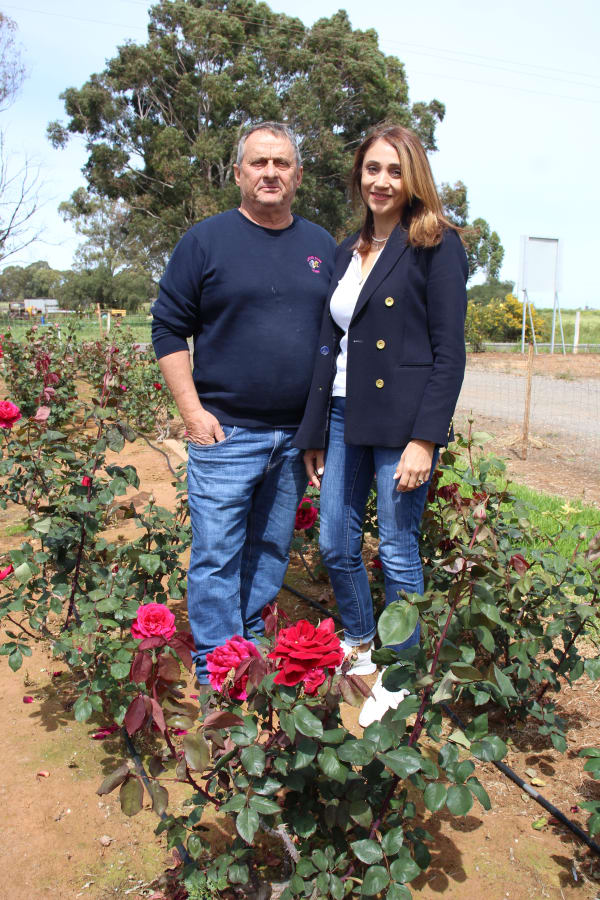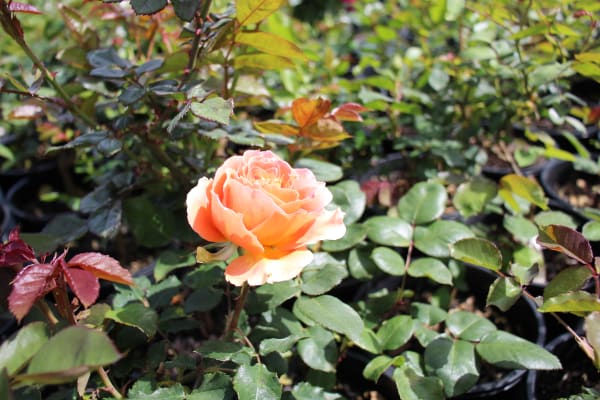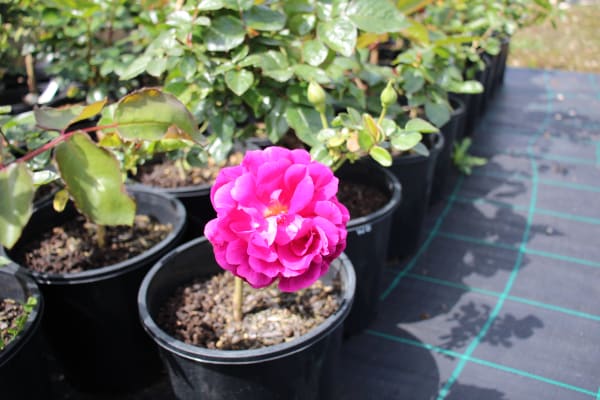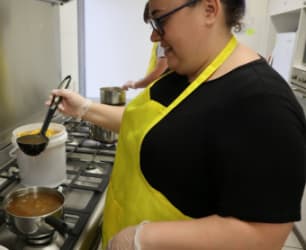SOME roses stand out for their striking colour, some for their pleasant scent and others are favoured for their heritage or hardiness.
But for commercial rose grower Andrew Delengas, all the rose varieties he grows are his favourite.
However, he admits a soft spot for the well-known David Austin roses – for their flower, shape and smell.
Andrew and wife Tass own Hillier-based Gawler River Roses, a wholesale/commercial rose growing business that largely supplies to Bunnings.

Their production area encompasses 15 acres, with another 10 acres for potting, packaging, dispatching and propagating material.
They offer 180 varieties of rose, including 30 David Austins, and others as standards, miniatures, bush, or climbing.
Mr Delengas said he brought the Hillier property with rose-growing in mind, knowing that the region’s climate makes for ideal growing conditions.
“I come from Athens and when I came here I didn’t have a job, I didn’t want to work in a factory and so I did a correspondence course about horticulture,” he said.
I worked in the nursery industry for 10 years… I got involved with roses and I learned how to bud after three seasons and then thought I better start growing some.”
The business turns 30 next year and Andrew said the rose-growing industry has not been exempt from hardship.
Skill-shortages, the price of water, and a change in gardening habits have all contributed to a significant decline in the number of wholesale rose growers nation-wide.
“Say the early ’90s gardens use to be very big and formal, or cottage, and people would plant a lot of roses,” he said.
“The drought was early 2000s and when water restrictions were introduced the industry collapsed a bit. But we hung in there.
“Roses have been grown commercially for more than 5000 years.
“All right there’s ups and downs, but the thing is we have to change with the times as growers.
“For example, now the houses and yards are getting smaller, or more people live in apartments or units, then we have to grow varieties so they can put a rose in a little pot.”
Rose growing is no simple, or quick process.
First they need to be propagated by specialist rose budders – a process involving attaching the new buds onto rootstock.
Gawler River Roses has a South Australian rose budder it employs each year, but generally, rose budding is a dying craft.
“Back in the ’80s we used to have a lot of skilled workers come over from Europe and every rose grower would have one or two people budding,” Mr Delengas said.
“A lot of growers left and then because of circumstances – flight tickets too expensive, Covid coming along – the connection was destroyed.”
“[Rose budding] is a hard job; bending all day is hard on your body and then there’s the technical stuff.
“You are using a surgical knife and you’ve got to understand the plant, you have to understand the ‘bloodflow’ of the plant, you have to understand the bud and if it’s good or not.”
The business employs around 15 workers during its busy ‘bagging’ season, which usually starts around April and goes through July.
When the roses are dormant the team works to harvest – or dig up – plants and bag them ready for distribution to Bunnings stores in all states, except New South Wales and Queensland.
“To me it’s enjoyable,” Mr Delengas said.
I like to do it; I get my hands dirty because you have to with this kind of job.”
Andrew said he believes the rose will always have its place in the Aussie-garden.
“Yes, it’s a luxury item,” he said.
“But the rose will make you happy, it will make you smile. That’s the role we play.”








